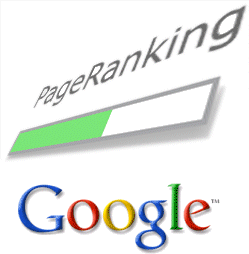I don’t want to beat a dead horse, but apparently, this needs to be said again. Let me explain, in the current business environment, social media is everywhere. As a result, finding and reviewing a business has become an effortless process. The good, bad and the ugly is out there for the world to see. For that reason, many businesses need to implement a specific strategy that will take into account all the potential good or harm that may come out of building your own community. Valuing tweets, communities, and blogs is an ideal place to start. and creating a presence on Facebook while interacting with your readers can help as well. But that’s another post, altogether.
Many online managers from B2B and B2C are recognizing that social media can add value to a business and help generate interest, when one understands the clients and their goals. In most cases, businesses are unsure how to approach social media. Moreover, the business may not understand how to measure the effectiveness of this medium or how to validate the investment. Although this area may be uncharted terrain, businesses should understand that implementing social media strategies can offer several innovative and creative benefits. So don’t be shy – talk to your entire team, as this needs to be a company effort, not a one-time meme approach (unless you are your own brand and that’s another topic, as well).
Understand The Barriers of Social Media
The largest obstacle for many businesses attempting to implement a social media strategy is a lack of know-how. In order to successfully use social media as a tool, the business must understand which barrier is specific to their company. According to Work Smart, the main barrier many businesses face involves understanding social media enough to know where to start. Work Smart claims that 37% of businesses have not established a method of measuring effectiveness. In addition, 26% of businesses do not have funding in the budget and 25% lack the time to invest in a social media program. Although individual barriers can vary, the business must understand their specific needs in order to use social media as an effective tool.
Start With The Basic Platforms
Many SEO consultants and social media experts recommend tackling social media through complex linking strategies. Seriously? I’ve said this before and I’ll say it again K.I.S.S. Keep it simple stupid! Therefore let’s break this down to something simple. We know most businesses require a simple method that is sustainable. A business needs to establish a presence and use social media as a marketing tool to expose the business to potential clients, create new leads, and establish their community while building authority. In some cases, this method requires a multifaceted approach that utilizes several social media channels. It is important to note that these channels need to fit the company’s basic objectives and target audience. It’s equally important that these channels provide valuable social media content. Here are few social networks we recommend and how/why you can/should use them.
1. Use LinkedIn – LinkedIn is a user-friendly and straightforward social media channel. For local businesses, this channel helps generate credibility. Although engagement is generally low, potential clients and customers visit LinkedIn to determine the legitimacy of a business. In some cases, the lack of a LinkedIn profile may create a negative perception to potential clients
2. Use Google+ – Over the last couple of years, Google+ has experienced significant growth in the number of active users. The primary benefit of establishing an account and promoting a business using this platform is “complete” SEO. Google+ helps attach an individual reputation to the social engagement of content. This can result in links to a specific brand or local businesses. More importantly, this platform allows businesses to provide their name, address, and phone number (commonly referred to as NAP) within a local search network.
3. Use Facebook – Currently, using Facebook as a marketing and business tool is common practice. This platform has a massive number of active users and provides a remarkable ability to engage an audience. Facebook is the most dominant social marketing platform available for any business. For that reason, this platform is simply too powerful for any business to ignore. Facebook has the highest engagement of any social media platform. High engagement numbers can provide vast opportunities for businesses. The recent news feed is a feature that allows marketing experts to keep users engaged with up-to-date videos, content, and images.
4. Use Twitter – After introducing Vine and other innovative apps, Twitter has evolved into a more contextual social platform. Twitter is currently one of the more relevant and effective platforms to utilize for local marketing strategies. This platform allows users to embed tweets and exploit trending hashtags. These features can help increase engagement and generate interaction with a specific target audience.
Develop Relevant Content (Surprise)
For any social media platform, the business must create and share relevant content. But the content needs to be important to the local community. For example, a business can support or sponsor a local charity that benefits community interests. The result of using social media content that relates to the business can help amplify the company’s participation. Moreover, this process can help reach specific clients and lead to increased engagement.
Focus Your Social Media Strategy

The local business market typically consists of two basic categories. The first is retail/restaurant and the second is lead generation. Lead generation includes medical practices, contractors, legal practices, real estate, etc. It’s important to understand that each category requires a unique social media strategy. The approach should be focused locally and tailored to a specific business model. For instance, retail stores may use Twitter as an effective method of driving in store sales. Tweeting followers about promotions, special offers, and discounts can be a beneficial marketing tool. However, lead generation may use Twitter as a method of raising awareness about a new product or service via trending hashtags.
3 Benefits Social Media Provides
1. Social Media Helps Reduce Marketing Costs
The option of tweeting a message or posting on Facebook is considerably less expensive than producing an ad or mailing marketing pieces. Social media offers a cost effective alternative to many traditional marketing tools. Remember, social media is all about inbound marketing, not outbound marketing.
2. Social Media Creates an Online Personality
Think of social media as a party rather than a formal meeting. This platform allows businesses to interact with clients or customers socially on an informal level. Social media is an ideal method of displaying individuality. This makes it much easier for businesses to connect with clients and develop lasting relationships with loyal customers.
3. Social Media Can Validate a Business
Ultimately, it breaks down to this: a businesses that communicates effectively with clients/customers understand the importance of using social networks hand in hand with their customer service. When a customer service interaction occurs online, it may be witnessed by other potential clients. When the customer praises the business online, it helps validate the business. This helps increase the chance potential clients will consider using the business’ products or services.
In conclusion it should be said that when dealing with online customers, make sure you have a Social Media Policy in place for your company. Don’t allow a newcomer to take over your online brand, especially when dealing directly with clients and potential new clients. The last thing you need is for a meltdown to occur and no one in charge to control the fire. Yes, Social Media Helps.








































One Response
People calling themselves ‘social media gurus’ really get my rage up. So frustrating that they over complicate even the more simplest of tasks. Great article.